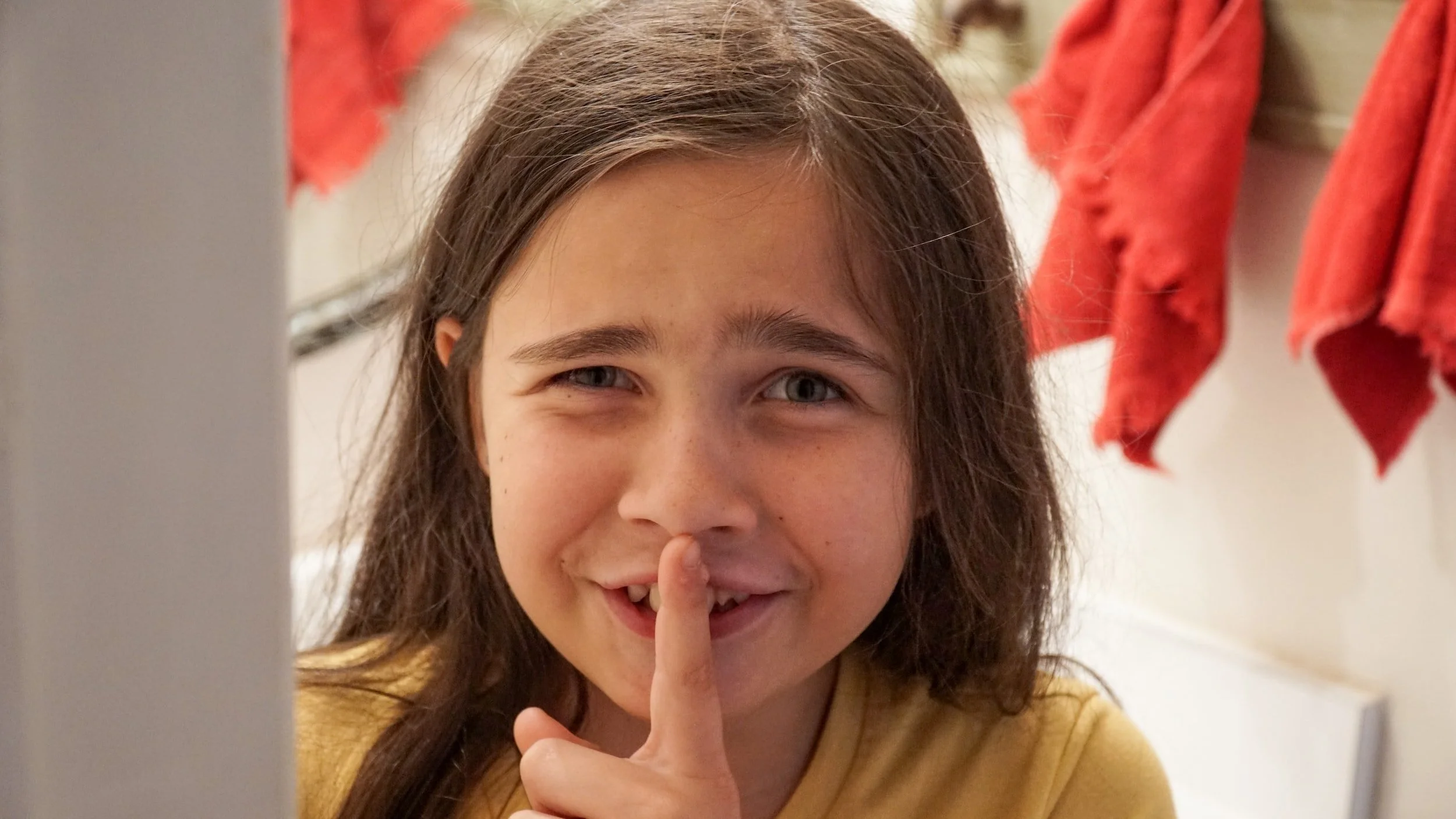When To Stay Quiet
So, your wee one has asked a big, juicy question, and despite it making you extra squirmy, you’ve been brave and engaged them in a conversation about it. Kudos! Now for the next step: keep your mouth shut, for a minute or two, anyway.
No, we’re not suggesting you pat your kid on the head for being a big thinker and end the conversation there. We are, however, suggesting that you resist the temptation to do what most adults do- fill in the answers for them. It’s a toughy, for sure. Aren’t big people supposed to know everything? Isn’t it our job to swoop in heroically and fill in the gaps? In cases like “Should I touch the stove?” or “Should I draw all over my cousin?”, maybe, but when a really big, philosophical question comes up, less is often more. Here’s why:
You probably don’t know the answer, at least not right off the bat. Really big questions don’t often have one clear answer. That’s what makes them so cool.
In giving answers, you risk biasing your kid one way or another. I know, I know, there are values and ideas we’d really like to instill in our kids. Even if something seems common sense, and we really, really want your kid to arrive at a particular conclusion, allowing them to come to that conclusion through their own process of inquiry is likely to be more meaningful and empowering.
Your kid is smart, and even when they’re very small, they’re capable of thinking their way through big questions. It may take a while. It may take a long, long while. It may take multiple conversations, and they may flip flop on their answers. No biggie. Stand back and give them space to do their thing.
You can still jump in when they’ve really gone off track. “Just because”, “because I say so” and other boo boos in logic still need to be (gently) corrected.
You may find yourself questioning some of your own assumptions in the process. Contrary to what they say, you can teach an old dog new tricks. If you child experiences what it’s like to think through a question along side an open-minded adult, then that’s amazing. What an example to set!
Grab a cup of tea, put your feet up, throw out a big question, and (with sincerity) ask “What do you think?” In this case, silence is golden.



